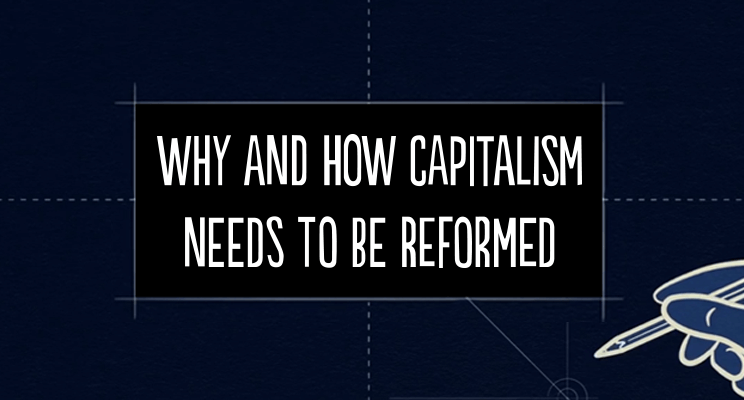
Ray Dalio of Bridgewater Capital has a personal net worth reported to be over $18bn, sourced from his hugely lucrative hedge fund business.
When he wrote a 7,500-word opinion piece this month called “Why (and how) capitalism needs to be reformed”, this created a stir for sure. I don’t agree with all of his points, but I find it powerful that someone who has made billions from capitalism will now speak so clearly about how the entire system needs reform.
With approaching 600 daily articles on this site, themes keep repeating, plus there is always an element of curation of ideas, sometimes simply sharing something I’ve read from others with minimal added opinions of my own.
Two points only from me today before sharing Ray Dalio’s article:
- Inequality and the need to reform capitalism are repeated themes for me on this site. Curating some of my own articles on this, start with “Purpose, People, Planet. The new triple bottom line.“, “Income inequality – history is a teacher“, “CEO Pay and Ugly Leadership“, “Beautiful Leadership – Purpose and the Corporation“.
- Narrative is key to making your point. As I was taught long ago: “never make a point without telling a story”. Ray Dalio makes his key points in the first four paragraphs of his article, as not everyone will read 7,500 words. He also begins right away with a story. For more, read “There I stood on the burning deck“.
Oh, and Ray Dalio also created the wonderful “How the Economic Machine works”. If you’d like to get a distilled understanding of Economics, watch this 31 minute video.
Why and How Capitalism Needs to Be Reformed
(As noted above, Ray Dalio makes his core points in the first four paragraphs, repdouced below. Full article may be found on LinkedIn here)
I was fortunate enough to be raised in a middle-class family by parents who took good care of me, to go to good public schools, and to come into a job market that offered me equal opportunity. I was raised with the belief that having equal opportunity to have basic care, good education, and employment is what is fair and best for our collective well-being. To have these things and use them to build a great life is what was meant by living the American Dream.
At age 12 one might say that I became a capitalist because that’s when I took the money I earned doing various jobs, like delivering newspapers, mowing lawns, and caddying and put it in the stock market when the stock market was hot. That got me hooked on the economic investing game which I’ve played for most of the last 50 years. To succeed at this game I needed to gain a practical understanding of how economies and markets work. My exposure to most economic systems in most countries over many years taught me that the ability to make money, save it, and put it into capital (i.e., capitalism) is the most effective motivator of people and allocator of resources to raise people’s living standards. Over these many years I have also seen capitalism evolve in a way that it is not working well for the majority of Americans because it’s producing self-reinforcing spirals up for the haves and down for the have-nots. This is creating widening income/wealth/opportunity gaps that pose existential threats to the United States because these gaps are bringing about damaging domestic and international conflicts and weakening America’s condition.
I think that most capitalists don’t know how to divide the economic pie well and most socialists don’t know how to grow it well, yet we are now at a juncture in which either a) people of different ideological inclinations will work together to skillfully re-engineer the system so that the pie is both divided and grown well or b) we will have great conflict and some form of revolution that will hurt most everyone and will shrink the pie.
I believe that all good things taken to an extreme can be self-destructive and that everything must evolve or die. This is now true for capitalism. In this report I show why I believe that capitalism is now not working for the majority of Americans, I diagnose why it is producing these inadequate results, and I offer some suggestions for what can be done to reform it. Because this report is rather long, I will present it in two parts: part one outlining the problem and part two offering my diagnosis of it and some suggestions for reform.
